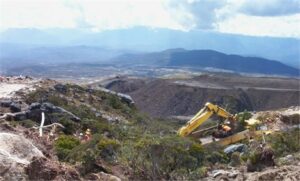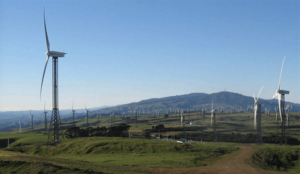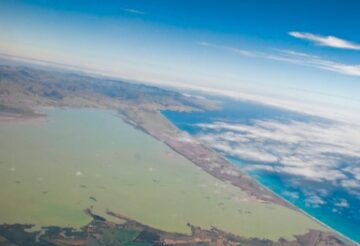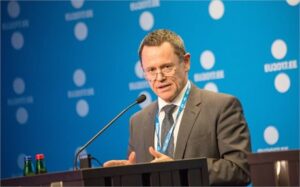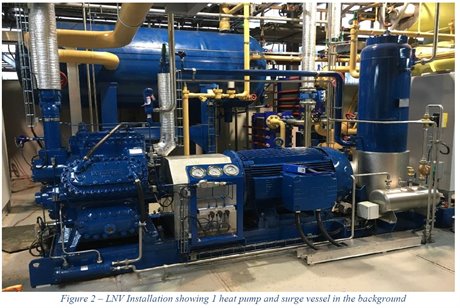
Partner content - Emissions from our energy and industry sectors make up 27% of our total emissions, so they represent a big opportunity for decarbonisation.
New Zealand’s Emissions Reduction Plan, released in May 2022, sets out the pathway for how Aotearoa will meet its first emissions budgets (2022-2035) and achieve long-term climate targets.
To help meet this challenge, the Government expanded funding of around $650 million for the Government Investment in Decarbonising Industry fund (GIDI), funded from the Climate Emergency Response Fund (CERF).
The GIDI Fund, administered by EECA (Energy Efficiency and Conservation Authority), exists to bridge a funding gap identified by research as the most critical barrier to businesses decarbonising.
However, businesses are in varying states of readiness for decarbonising, a process that involves first looking at reducing energy use followed by switching to renewables (using the best technology for your requirements), away from fossil fuels. Some are ready but don’t have the capital and can’t afford to, and some don’t know where to start.
One business who was ready to significantly reduce their emissions profile was Alliance Group, one of New Zealand’s largest red meat exporters, who have a goal to eliminate coal use by 2029.
Alliance Group’s Manufacturing Manager, Willie Wiese, says that decarbonisation is critical for future-proofing from both a sustainability as well as a financial perspective.
“I think some businesses anticipate financial barriers to decarbonisation, and yes, the initial investment can certainly be a hurdle to overcome, but we have found that our operating costs have reduced, and by making the move earlier we can contribute far more to the 2050 emissions reductions targets.”
“Plus, we expect that environmental standards and regulations will change so it makes economic sense to get ahead of the curve.”
Alliance Group is a farmer-owned co-operative – the meat processing company exports 95% of its lamb, beef, and venison products to more than 65 countries. The company has two processing plants in Southland at Lorneville and Mataura, and another five sites at Dannevirke, Levin, Nelson, Oamaru, and Timaru. Alliance currently has several projects in the works.
One major project was New Zealand’s first high temperature heat pump, commissioned in 2019 at its Nelson plant. Within its first year of operation diesel use was reduced by 44% and on-site electrical efficiency was improved.
Wiese stresses that decarbonisation is not just about technology and fuel switching, but also looking for ways to increase process efficiency and reduce demand for energy.
“New technology is exciting and offers so much potential to transform operations, but simple demand reduction has continued to make a material difference for Alliance – both in terms of emissions reduction and cost-efficiencies,” said Wiese.
Wiese wants other businesses to get on board – and is keen to share Alliance’s learnings to help accelerate efforts across the motu.
“At Alliance we have a very clear sustainability pathway, and we want to show leadership in decarbonisation.”
Encouraging more businesses to decarbonise their industrial operations is something echoed by EECA General Manager Business, Nicki Sutherland.
“We realise that this is a particularly challenging time for businesses, but it is also an opportune time to make the most of emerging technologies, escape the rising costs and supply volatility of fossils fuels, and access the high levels of government support available,” said Sutherland.
The GIDI Fund is open to businesses who reduce existing emissions through demand reduction or by choosing a renewable option over business as usual, with up to 50% of the cost difference available as a grant for projects – through a contestable process. Projects must significantly reduce existing emissions from process heat, and applicants must demonstrate that they could not proceed at all, as early, or with as much impact, without government support.
The current funding round runs through until 2 March 2023 with application forms on EECA’s website. The recipient’s for GIDI Round 4 will be announced in the next few weeks.
“We are encouraging process heat users to check their eligibility for co-funding if the upfront costs of decarbonisation are challenging,” said Sutherland.
“With Round 5 of the GIDI Fund closing on 2 March, we’re already looking at expanding it further to include more technologies, and make co-investment support available for a wider range of NZ businesses right through to SMEs. We’re excited about the changes that will be launched from 1 July.”
“Emissions reduction is our north star – all changes and improvements aim to see the government investment deployed at the greatest possible value for the broader public benefit.”
In May 2022 the GIDI Fund was expanded to almost $650 million over four years building on the success of the first three rounds (that involved $69 million in investment). The Fund’s carbon abatement targets are ambitious and aim to prevent 1.66 million tonnes of CO2 entering New Zealand skies by December 2025 and 14.5 million tonnes by December 2030.
Those interested in learning more about who is eligible for GIDI funding can visit the EECA website: EECA Industry Decarbonisation
- SEO Powered Content & PR Distribution. Get Amplified Today.
- Platoblockchain. Web3 Metaverse Intelligence. Knowledge Amplified. Access Here.
- Source: https://www.carbonnews.co.nz/story.asp?storyID=26984
- 1
- 2019
- 2022
- 2023
- 9
- 95%
- a
- About
- accelerate
- access
- Achieve
- across
- administered
- ahead
- All
- Alliance
- already
- ambitious
- and
- announced
- Another
- anticipate
- Application
- around
- authority
- available
- barrier
- barriers
- Beef
- benefit
- BEST
- Big
- board
- BRIDGE
- broader
- Budgets
- Building
- business
- businesses
- capital
- carbon
- certainly
- challenge
- challenging
- change
- Changes
- check
- choosing
- clear
- Climate
- closing
- co2
- Coal
- company
- CONSERVATION
- content
- continued
- contribute
- Cost
- Costs
- could
- countries
- critical
- Current
- Currently
- curve
- December
- Demand
- demonstrate
- deployed
- diesel
- difference
- Dont
- Earlier
- Early
- Economic
- efficiency
- efforts
- eligibility
- eligible
- eliminate
- emergency
- emerging
- Emissions
- encouraging
- energy
- energy efficiency
- energy use
- environmental
- excited
- exciting
- existing
- exists
- expanded
- expanding
- expect
- exports
- few
- financial
- First
- followed
- forms
- fossil fuels
- Fossils
- found
- from
- Fuel
- fuels
- fund
- funded
- funding
- Funding Round
- further
- gap
- General
- get
- goal
- Government
- Govt
- grant
- greatest
- Group
- Group’s
- help
- helps
- High
- How
- HTTPS
- identified
- Impact
- improved
- improvements
- in
- include
- Increase
- industrial
- industry
- initial
- interested
- investment
- involved
- IT
- July
- Keen
- Know
- largest
- launched
- Leadership
- learning
- levels
- long-term
- looking
- major
- make
- MAKES
- Making
- manager
- manufacturing
- March
- material
- Meat
- Meet
- million
- more
- most
- move
- New
- New Zealand
- next
- normal
- North
- Offers
- ONE
- open
- operating
- operation
- Operations
- Opportunity
- Option
- Other
- Overcome
- particularly
- perspective
- plan
- plants
- plato
- Plato Data Intelligence
- PlatoData
- possible
- potential
- prevent
- process
- processing
- Products
- Profile
- project
- projects
- public
- pump
- range
- Readiness
- ready
- Red
- reduce
- Reduced
- reducing
- regulations
- released
- Renewable
- Renewables
- Requirements
- research
- response
- rising
- round
- Said
- says
- Sectors
- sense
- Sets
- several
- Share
- show
- significantly
- Simple
- Sites
- skies
- SMEs
- So
- some
- something
- standards
- Star
- start
- States
- supply
- support
- Sustainability
- Switch
- targets
- Technologies
- Technology
- terms
- The
- The Capital
- their
- three
- Through
- time
- to
- Total
- Transform
- use
- users
- value
- Volatility
- ways
- Website
- Weeks
- WHO
- wider
- will
- within
- without
- works
- year
- years
- Your
- Zealand
- zephyrnet


